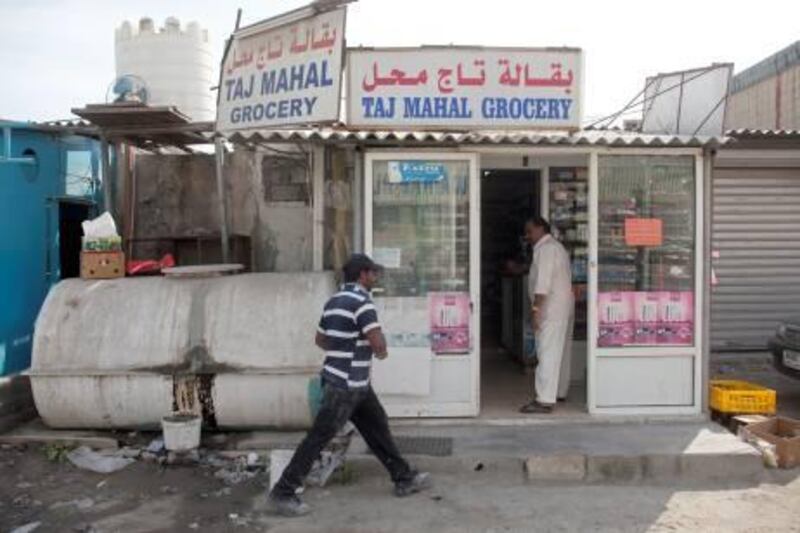FUJAIRAH // Mohammed Younus, a mechanic from Bangladesh, sleeps in a 12-square-metre room with five other men. There is hardly enough room to accommodate two bunk beds, let alone a table. He eats lunch hunched on his bed.
While such accommodations are common in the Northern Emirates, workers in Fujairah might soon see an improvement. Fujairah Municipality will move the workers currently living in the industrial area to a new labour camp in Al Hayl, one of at least three to be built on the emirate's east coast.
The new lodgings are part of a plan to relocate Fujairah's industrial area so that it is outside the city.
The overcrowding will be addressed, but there are other issues that concern Mr Younus.
"We are [now] six people in four beds," he said. "This municipality says this is not allowed [in the new camp], but Al Hayl is a difficult area. It's far from supermarkets and the bazaar. This is the problem. If there will be markets, mosques, then it will be OK for me."
The problem of adequate amenities is not restricted to Fujairah. The accommodations in the Al Ghail industrial area in Ras al Khaimah have only a handful of shops nearby, where fruit and vegetables can cost five times as much as in RAK city. There are few mosques and no gardens or rest areas for the thousands who live there.
Fujairah is building the large-scale labour camps, like those in Dubai, to help tighten oversight so that they can comply with Ministry of Labour guidelines. The plan is to have them in place by 2014 at the latest, including all the necessary facilities, Mohamed al Afkham, the municipality's general manager, said.
"We will try within two or three years to keep all the people in the labour camps," he said of the workers. "We will try to keep people close to their jobs, and labourers with their families. According to all requirements, it will be safe and clean. We're trying to look at all points of view.
"It's just to make sure that everybody is living in the same conditions, but I'm trying to see if it's really an advantage. We have to organise the city and make it better."
Construction of the new accommodations has already begun, a happy thought for the many workers living in the garages and shops where they are employed, or in run-down villas that do not meet the ministry's minimum standards.
The Ministry of Labour was not available for comment.
Businesses in the current industrial zone in Fujairah, which have one year to move or face demolition, have been lucky not to be relocated earlier, as a lack of local infrastructure led to the project being delayed.
"We wanted to move it a year ago, but the problem was the lack of electricity," Mr al Afkham said. "Now we have reached an agreement with the authority of electricity and water."
There is added impetus for the move because of an expected growth spurt as new infrastructure projects are completed. Work on a 370-kilometre pipeline from Abu Dhabi's largest oilfield was wrapped up in November and a Dh1.5 million, six-lane highway will connect the emirate to Dubai next year.
Companies in the current zone are guaranteed electricity in Al Hayl as part of the relocation programme. The Sana'aie industrial area, which has about 3,000 licensed companies, is a ramshackle collection of unsightly factories and garages.
"It is a good idea," Salim Khan, a Pakistani who ran a garage in the old industrial area for 10 years and plans to open a business in Al Hayl, said. "It is better far away from the city. Here [in Sana'aie] there is no road system. It will be safer. They will have nice workshops, not sheds."





